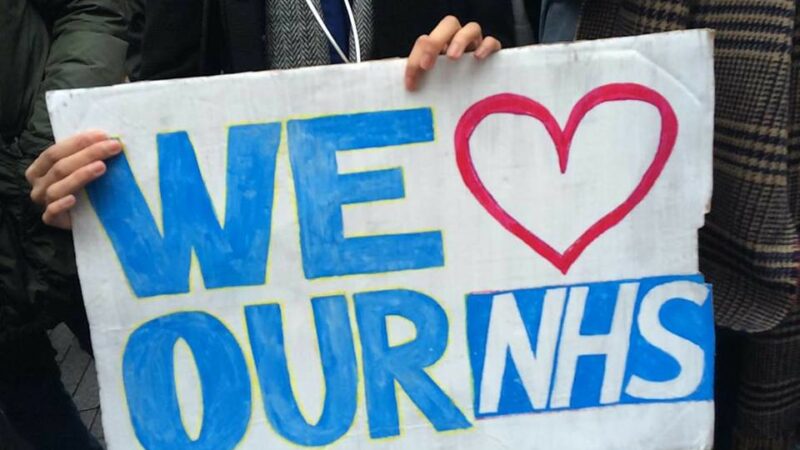'For the first time ever, more that 50% of an important NHS funded service – hip and knee replacements – are being paid for privately rather than delivered by the NHS.'

For the first time ever, more that 50% of an important NHS funded service – hip and knee replacements – are being paid for privately rather than delivered by the NHS.
In other news, austerity funding of care services, combined with Covid, has led to waiting lists on a scale we thought could never happen again. This is accompanied by campaigns to denigrate NHS services, such as the blatant and totally unjustified attacks on NHS managers and GPs – to take just two examples.
Long waits and the impression of a worsening NHS are leading to increasing numbers of better off patients opting to pay for private care.
What both these trends show is that the NHS lacks the capacity it needs. It is this lack of capacity – and the lack of adequate funding to restore the capacity lost during the pandemic – that is the real threat to its future.
It means a steady and relentless increase in the proportion of healthcare delivered by for-profit organisations rather than the public sector. It could lead to tax relief on private health insurance – as happened in the 90’s – while a cash-starved NHS is forced to turn to the private sector for investment and capacity.
In the 90s the worsening plight of the NHS was eventually stopped by the election of New Labour and the injection from 2000 of substantial year-on-year above inflation increases in spending – until this was ended from 2010 by the Tory-LibDem coalition’s austerity plan.
The NHS has always relied on services being wholly or partly provided by organisations outside the NHS itself – be it GPs, pharmacies, specialist mental health or even by local authorities or voluntary organisations like hospices. As of today, perhaps as much as 25% of NHS services are provided outside of the NHS Trusts and Foundation Trusts.
In a mixed economy, there is always going to be some involvement of the private sector, in providing goods and services. Unpicking the model for GPs, dentists, pharmacy, pathology and more is unlikely to be a short term priority despite the shouts that the NHS has to be totally publicly provided.
But there will be a tipping point, where the private interests become so significant that the interests of investors and shareholders have an influence. If the NHS is highly dependent on for profit organisations, then those organisations will demand profitable deals and the NHS will have no option other than to pay.
There has to be a point where investment in increasing NHS capacity is economically justified (especially when borrowing is cheap) as compared to the short-term expediency of what is really outsourcing. In other areas of the public sector the end of the era of outsourcing is apparent.
For both the NHS and social care (or some synthesis of the two) it is obvious that a necessary step in resolving the crisis is greatly increased and more stable funding. More funding allows workforce solutions to become possible, even if in some cases it will take many years to execute a plan (if they even had a plan!).
That must be combined with the commitment to a high quality, predominantly publicly provided, system: and that requires large, sustained capital investment.
Public provision allows services to be planned, and redesigned to be better, not cheaper: and it should open access so all who need care can get care. Driving improvements in care should replace daily struggles to simply deliver a basic service.
The constant shouts of ‘Save our NHS’ which are triggered by minor (in terms of the scale of the NHS) events, such as a transfer of relatively few contracts for GP services from one company to another, can displace attention from much bigger, real dangers.
It is ignoring the elephant in the system.
It is all about the money. If we can’t win the fight for sufficient progressive taxation to fund a better system, our crisis-ridden NHS and social care will increasingly fail to deliver adequate services; and ever-larger numbers of those who can afford to do so will be pushed into paying privately. Staff frustrated by poor pay and constant pressure will increasingly be lured towards a growing private sector while the NHS is left struggling to staff and run emergency services, and millions more are left to go without the care they need.
This is the real threat of privatisation, taking shape in plain sight.
John Lister is Director of Health Campaigns Together and Richard Bourne is Health Advisor to Labour Lords
To reach hundreds of thousands of new readers we need to grow our donor base substantially.
That's why in 2024, we are seeking to generate 150 additional regular donors to support Left Foot Forward's work.
We still need another 117 people to donate to hit the target. You can help. Donate today.



